14th March 2018
A blog written by iHV Fellow Chris Gordon on her recent trip to Bulgaria.
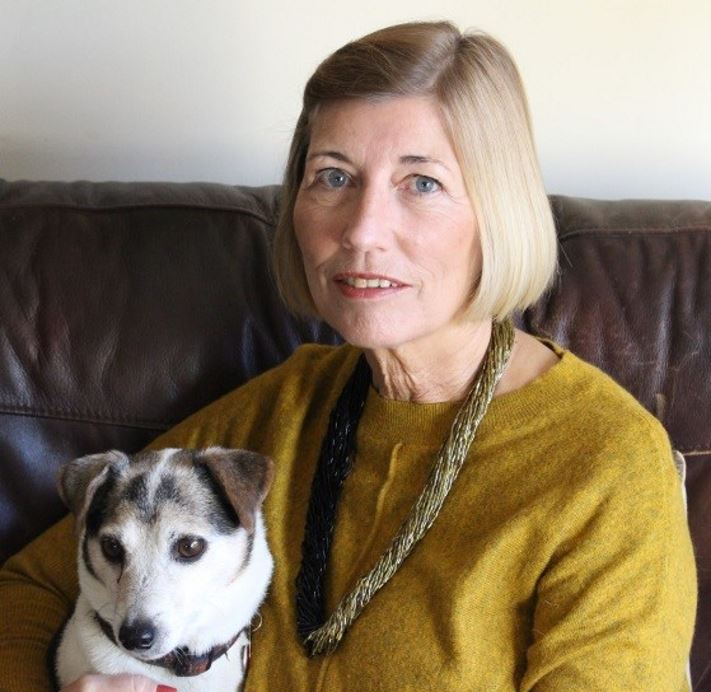
Having retired from teaching health visitor and school nurse students at the University of Suffolk and said farewell to my dear colleagues and friends, I was feeling a little melancholy. Not really sure of my future plans although I knew that I did not want to fully retire but what possibilities were there?
A phone call that evening set me on an interesting journey. I was asked if I would I be interested in supporting UNICEF in their development of home visiting in Bulgaria? For someone who is always looking to progress knowledge and understanding of practice, especially for the benefit of children and families there was only one answer, of course yes.
A visit to Coventry to meet Jane Williams (Retired Head of Children, Young People and Family Services in Warwickshire and Trustee of the Institute of Health Visiting) and Sarah Galloon (Health Visitor, Warwickshire), both had already visited Bulgaria on several occasions, sealed my commitment to an interesting and motivating experience. Plans were soon underway with Vera Rangelova (Early Childhood Development, UNICEF Bulgaria) to develop a week’s programme of visits and presentations aimed at supporting the development of home visiting in the country.
Our first day in Sofia, the capital of Bulgaria, was the last Sunday in October – we met to finalise our plans and then explore this beautiful city. With the backdrop of the Vitosha Mountains, Sofia is an accumulation of ancient and stunning buildings including many beautiful churches throughout its city streets.
The following day we travelled three hours east to the town of Sliven, its earliest settlement dates back to the 5th century BC. This is one of only two towns in Bulgaria that have a home visiting service, the other is the town of Shumen. These are supported by UNICEF who had also set up a pilot for the Nurse-Family Partnership (2018).
We met with the home visitors who welcomed us and were very pleased to renew their acquaintance with Jane and Sarah. Students from the local language college acted as interpreters and we were amazed at their fluency in English. We visited a couple of families with the home visitors and returned for a case discussion. Both of the families, although living in limited home conditions with shared toilet and washing facilities, had infants that were thriving and had good attachment with the parent. There was reported to be good family support and neither home visitors had concerns.
The next morning we requested to visit families where there were concerns, Jane especially wanted to meet a young mother of twins she had visited previously. The family lived in a Roma Community and it was not known if they would be in or welcome to our visit. The twins had been born prematurely and spent a length of time in the special care baby unit where the mother was not allowed to visit and therefore form an early attachment. Their reasons for limiting visits were stated to be the risk of cross infection.
Our visit to the young Roma family, although unexpected, was accepted and we were invited into their home. This was a small one room dwelling with two beds and a freestanding metal stove used to heat the room and for cooking on. There was minimal floor covering and the walls were in disrepair. Toilet and washing facilities were outside and these were shared with a number of families. The young mother, with her friend, were squatting on the floor cracking walnuts to extract the kernels. This was one of the tasks offered to the community as a form of employment and they were paid 1 Lev (50p) for a large plastic bag of kernels. Although they had agreed to our visit, they did not want to stop working. One of the twins was helping them by cracking the walnuts using a stone and a brick and he was quite adept at breaking the shell without damaging the kernel.
There were five children in the room, the young mother’s three year old twin boys; her eight month old daughter and another two small boys. Jane tried to use the Ages & Stages Questionnaire (2017) to assess both twin’s development with the help of the interpreter. Unfortunately, due to the frenetic activity in the room, it was not possible to complete. Jane did notice that the convergent squints that one of the twins was born with had become worse since her previous visit and she asked the mother about treatment – she said that this was not possible as they could not afford the surgery or the cost of travel. This was raised with the home visitor, she was unsure that there could be the possibility of treatment in the future. The issue was later raised with Vera from UNICEF to possibly enable the surgery to be undertaken to avoid any further deterioration of his eyesight. The other young woman in the room was six months pregnant with her first child – she had not seen a doctor and was reluctant to take advice that she should go, to book for her pregnancy care. Returning to the office we shared the experiences of the day with the home visitors, discussed the aspects of each case and reflected on the advice given.
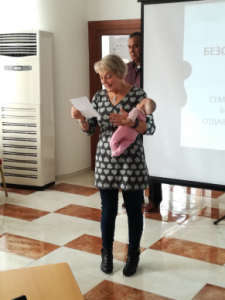 UNICEF provided a child safeguarding session in the afternoon, based mainly on policy, and we followed the next day with a workshop led by Sarah on the more practical aspects of identifying child abuse and risk assessment. Particular emphasis was made on partnership working and a strengths-based approach in the service provision. The workshop was well received with good participation from the Sliven and Shumen home visitors. Our interpreter Vic was extremely articulate in translating the language with much humour.
UNICEF provided a child safeguarding session in the afternoon, based mainly on policy, and we followed the next day with a workshop led by Sarah on the more practical aspects of identifying child abuse and risk assessment. Particular emphasis was made on partnership working and a strengths-based approach in the service provision. The workshop was well received with good participation from the Sliven and Shumen home visitors. Our interpreter Vic was extremely articulate in translating the language with much humour.
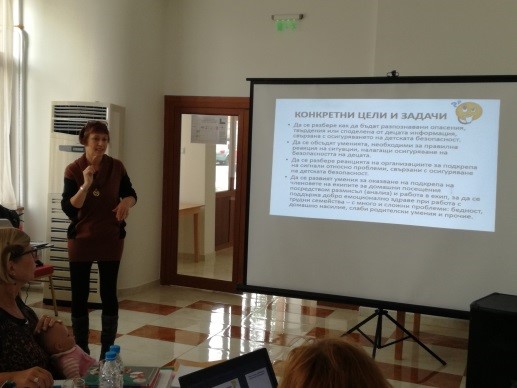
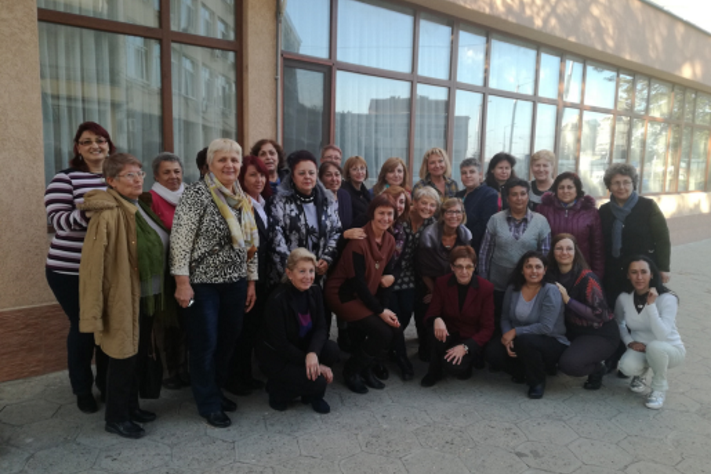
The following day we delivered a presentation at the university in Sliven to nurses and midwives. We had been asked to emphasise in our presentation to the nurses and midwives the importance of the first 1001 Critical Days (2014), to highlight infant mental health and attachment as a need for change. Jane and Sarah had knowledge from their previous visits of the separation of infants from their mothers after birth and exclusion of parents from the baby care unit if the infant was transferred there. A mother who had suffered this separation due to her baby’s prematurity provided a very tearful account of her experience, which was sad and heart wrenching.
We returned to Sofia for our final day to attend a meeting with members of the medical university and heads of associated organisations interested in the welfare of children. We shared a further presentation on the importance of infant attachment which was more research based and emphasised the need for the development of a home visiting service. There were a number of speakers who shared further research on the subject and their views on the importance of services for children. I gave a final unplanned presentation on the service we deliver in England involving the mandatory visits as I thought this was important knowledge to impart having listened to their views and concerns.
There is a government decision to roll out home visiting to all regions in the country as of 2018 with EU funds. So if everything goes as planned, Bulgaria will have home visiting services across the whole country. On reflection that evening prior to our departure, we felt that we had sown the seeds of what the provision could look like. We also hoped that in providing evidenced-based information highlighting the importance of attachment and the infant-mother experience that changes could be made to improve this for the future, enabling all mothers close contact with their babies from birth and without interruption.
It was a privilege to meet and share experiences with the home visitors, nurses, midwives and university professors of Bulgaria. We were made very welcome and the hospitality afforded us was much appreciated. We experienced their food, culture and entertainment even attending an evening of traditional singing and dancing whilst in Sliven. We thank everyone again for the memorable time we had on our visit.
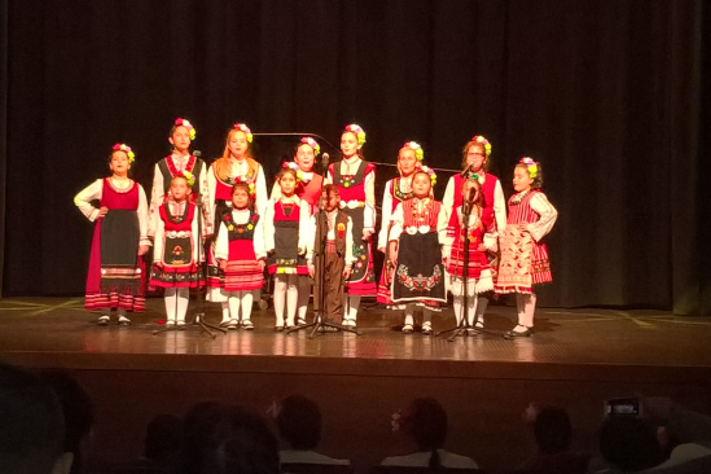
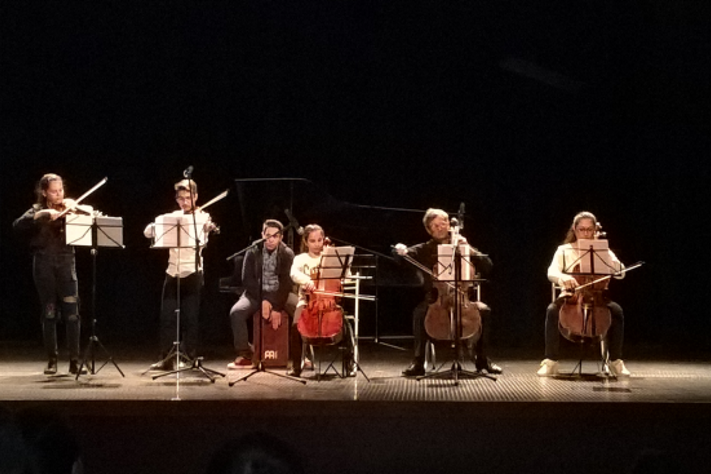
Chris Gordon FiHV
References:
Ages and Stages (2017). Ages and Stages Questionnaire (3rd Ed). Available at: http://agesandstages.com/products-services/asq3/ [Accessed 17.1.17]
Government and Wave Trust (2014). 1001 Critical Days: the importance of conception to age two period. http://www.1001criticaldays.co.uk [Accessed 12.10.17]
Nurse-Family Partnership (2018). Available at: https://www.nursefamilypartnership.org/about/ [Accessed 802018].
Unicef (2017). Unicef Bulgaria. Available at: https://www.unicef.bg/en [Accessed 17.1.17]






